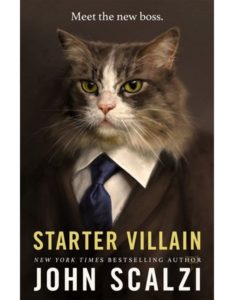
Welcome to the first reading list of 2024!
Let’s talk about what we’re reading to kick off the new year. Here are a few books from me. And, as always, let me know what you’re reading these days.
Howard Bryant – Rickey
Did the world need a biography of Rickey Henderson? Maybe. Did I still feel like reading about baseball, even a month after the end of the World Series? I did.
But whether or not we needed to hear more about the life of Rickey, Bryant obliges us with a well written, engaging offering. He brings to live one of the most exciting and overlooked players of the 1980s and 1990s. Not to mention late 1970s and early 2000s, into which the very long career of Rickey Henderson also stretched.
Bryant succeeds when he focuses on Henderson’s time and place – part of a broad wave of black ballplayers who grew up in Oakland during and after the Great Migration. Henderson chose baseball over football, and he faced flak due to his flashy style. Bryant brings all this out.
I still wouldn’t rank Henderson among the most compelling figures for a biography. Probably not even among the most compelling baseball players. But this book works well enough.
John Haldon – The Empire That Would Not Die
Haldon tells a mystery story. How did the Byzantine (or Roman, depending on when you think the Empire ended) Empire survive the crises of the 7th century?
‘Crises’ is no exaggeration. The Romans finally won the Roman-Persian Wars, only to get rocked by a conquering Arab army. The Arabs took most of their eastern territories in the 630s and 640s. And they took their African territories by the end of the century. All this cut their tax revenue by about 80% and produced a series of crisis responses, such as iconoclasm.
Haldon appeals to a series of interlocking explanations for Byzantine survival. He argues the crises produced ideological unity and more easily defended borders. He further argues that climate forces and organizational reforms (e.g., the themes) provided advantages and that weaknesses in the caliphate helped things along.
I don’t think Haldon definitely answers the question of whether the rump Empire should count as Roman. But he does provide readers with a lot of the info they need to draw a reasonable conclusion.
Ann Patty – Living with a Dead Language
Patty tells her story – one of a publisher laid off in the 2008 Recession who moves to the country and studies Latin. The story moves from the classroom to Patty’s earlier career. Insofar as she draws these together into a theme, it’s a love of words.
The whole project is painfully Boomer. She probably could’ve called it A Very Boomer Retirement Journey.
That said, it’s not a bad book. And I think we can learn from a Boomer who naturally develops a freedom to explore. For those of us learning Latin (I count myself among them), we can get here via many paths.
John Scalzi – Starter Villain
So, yes, it’s another Scalzi novel. And like most Scalzi novels, it’s well written and clever. Regular readers of Scalzi won’t be disappointed, and it’s a perfectly fine entry point for new Scalzi readers.
This story stands out as one of the zanier ones I’ve read in awhile. It features intelligent cats and dolphins, Blofeld-like supervillains, volcano lairs, and the like. But after accounting for the wildness of the basic premise, the story hangs together well. Sclazi even incorporates some basic mystery elements and ties the story together nicely at the end.
Much recommended.